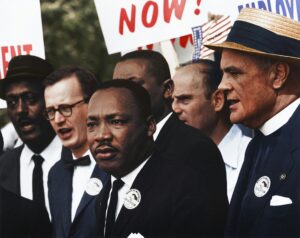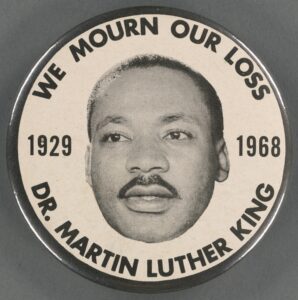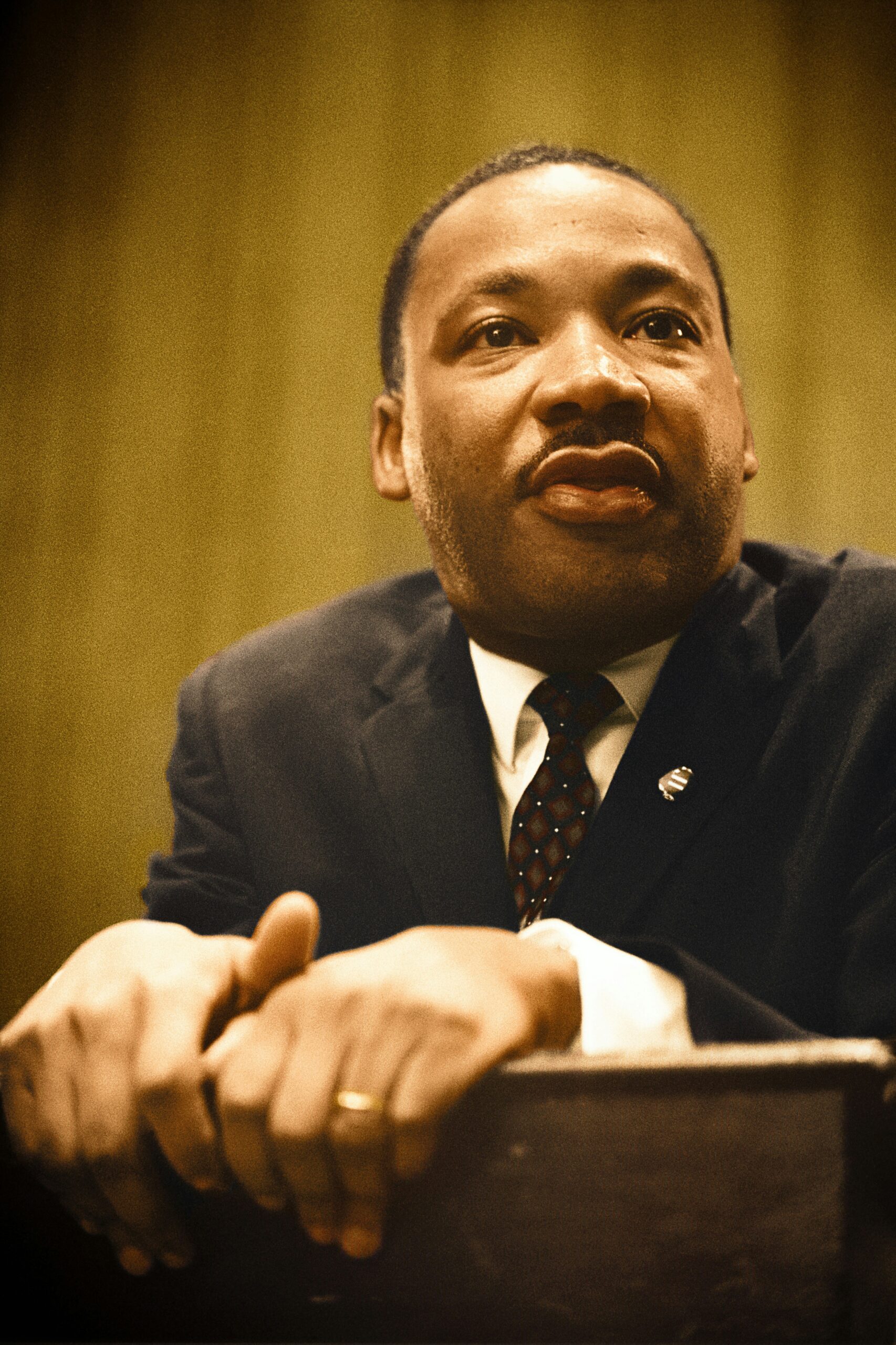In the annals of history, few figures shine as brightly as Martin Luther King Jr., a beacon of hope, justice, and equality. His name has become synonymous with the Civil Rights Movement in the United States, and his tireless efforts paved the way for significant social and legislative changes. King emerged as a preeminent leader, advocating for nonviolent resistance against racial injustice. His legacy transcends borders and generations, inspiring millions around the world to fight for equality and justice.
Early Life and Education:
Martin Luther King Jr was born in January 15, 1929 at Atlanta, Georgia. U.S. Primarily his name was Michael King Jr. His father was Martin Luther King Jr and mother was Alberta Williams King. They belong to an upper middle class family. His sister name was Christine King Farris and brother was Alfred Daniel Williams King. Both his father and maternal grandfather were Baptist preachers. After his grandfather, his father had succeeded as pastor of the prestigious Ebenezer Baptist Church in Atlanta. His parents were college educated and young Martin also grew up with proper education.
In 1934 King’s father (whose birth name is Michael King Sr.) embarked on a religious journey around the world. He travelled to Rome, Tunisia, Jerusalem, Bethlehem, Egypt and Berlin to attend Baptist World Alliance meeting. This trip occurred only one year after Adolf Hitler become chancellor of Germany. In this tour the senior King gain a great respect for German monk and theologian Martin Luther. To show his honour the senior King changes his and his five year old son’s name after protestant leader Martin Luther.
At age 6, king first went through discrimination for his colour. He was sent to all black school. At age 12, King attempted suicide after his maternal grandmother’s death. At age 6, King won a contest with a speech about civil rights. In 1944, after finish his schooling from segregated school in Georgia he went on to More house College in Georgia at the age 15 (he skipped two grade). He graduated in 1948 in Sociology at the age of 19. The More house president, Dr Benjamin E. Mays, became an inspirational figure in King’s life. After that he attached with Crozer Theological Seminary in Chester, Pennsylvania. Here he learned about Mahatma Gandhi’s (the revered Indian nationalist) philosophy of truth and non-violence. At that time King elected as president (1951) of Crozer’s student union for his public speaking skill which is almost composed by white student. After that he enrolled in Boston University’s doctoral program. In 1955 he received a Ph.D. in theology in Boston University at the age of 25. At that time he met Corretta Scott. They married in 1953.
The Montgomery Bus Boycott:
In December, 1955 King nominated as head of Montgomery improvement association, formed by black community. At that time King’s emergence as a civil rights leader began in 1955 with the Montgomery Bus Boycott, a pivotal moment in the struggle for racial equality. The boycott was sparked by the arrest of Rosa Parks, an Afro-American woman who refused to give up her seat to a white passenger on a segregated bus. In response, the African American community in Montgomery, Alabama, led by King, organized a boycott of the city’s bus system.
For 381 days, the Afro-Americans walked, carpooled, and utilized alternative means of transportation, demonstrating their collective resolve to challenge segregation. King emerged as the spokesperson for the movement, advocating for nonviolent resistance and civil disobedience. The boycott ultimately led to a Supreme Court ruling declaring segregation on public buses unconstitutional, marking a significant victory for the Civil Rights Movement (1956).
The Southern Christian Leadership Conference:
In 1957, Martin Luther King Jr. and other civil rights leaders founded the Southern Christian Leadership Conference (SCLC), a nonviolent organization dedicated to combating racial segregation and inequality. As president of the SCLC, King played a central role in organizing protests, marches, and voter registration drives across the South. His eloquent speeches, rooted in the principles of love, justice, and equality, inspired countless individuals to join the fight for civil rights.
In 1960, King’s family move to Atlanta, their native city and became a co-pastor with his father. One of the most iconic moments of King’s leadership came in August 1963, during the March on Washington for Jobs and Freedom. Standing before a crowd of over 250,000 people at the Lincoln Memorial, King delivered his famous “I Have a Dream” speech, calling for an end to racial discrimination and envisioning a future where all Americans would be judged by the content of their character rather than the colour of their skin. After that United State government passed the civil rights act, the discrimination against black people became illegal.
The Legacy of Nonviolent Resistance:
Throughout his life, Martin Luther King Jr. remained steadfast in his commitment to nonviolent resistance as a means of effecting social change. Inspired by the teachings of Gandhi and the principles of Christian love, King believed that nonviolence was not only a moral imperative but also a strategic tactic for confronting injustice.
King’s philosophy of nonviolence was put to the test in 1963 when he led a campaign against segregation in Birmingham, Alabama, one of the most racially divided cities in the South. Despite facing violent opposition from law enforcement and white supremacists, King and the demonstrators adhered to their principles of nonviolence, ultimately forcing city officials to desegregate public facilities and accommodations.

The Civil Rights Act of 1964 and the Voting Rights Act of 1965:
Martin Luther King Jr.’s tireless advocacy and grassroots organizing played a crucial role in the passage of landmark civil rights legislation in the 1960s. The Civil Rights Act of 1964, signed into law by President Lyndon B. Johnson, outlawed discrimination based on race, colour, religion, sex, or national origin and paved the way for desegregation in public spaces and institutions. In 1964, King was awarded the Nobel Peace Prize.
The Voting Rights Act of 1965, another pivotal achievement of the Civil Rights Movement, aimed to overcome barriers to voting faced by the Afro-Americans in the South. King and other activists organized marches and protests to demand voting rights for all citizens, leading to the passage of legislation that prohibited discriminatory voting practices such as literacy tests and poll taxes.
A Legacy of Hope and Inspiration:
Martin Luther King Jr.’s life was tragically cut short on April 4, 1968, when he was assassinated in Memphis, Tennessee. His death sent shockwaves across the nation and around the world, but his legacy endured, inspiring future generations to continue the fight for justice and equality.
King’s message of love, compassion, and nonviolent resistance remains as relevant today as it was during the height of the Civil Rights Movement. His vision of a beloved community, where all individuals are treated with dignity and respect, continues to guide activists and leaders in their quest for a more just and equitable society.
As we commemorate Martin Luther King Jr. Day each year, let us not only honour his memory but also rededicate ourselves to the ideals for which he stood. Let us strive to build a world where the content of one’s character truly matters more than the colour of one’s skin, and where justice and equality reign supreme. In the words of Martin Luther King Jr., “The time is always right to do what is right.”


